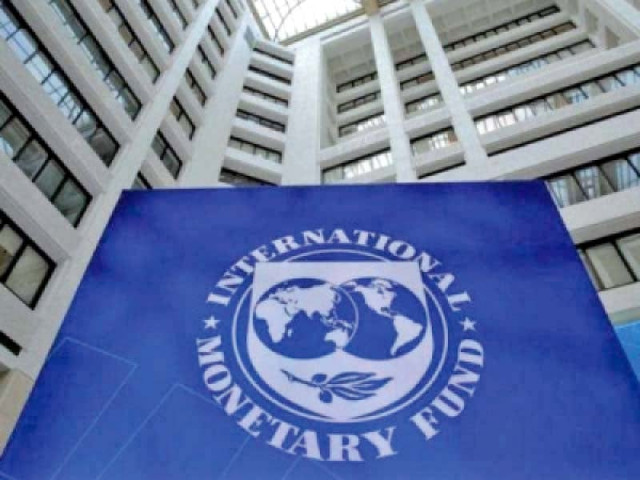IMF loan and Investment Plan B
They hold potential to rejuvenate economy but it depends on political stability

The new $3 billion IMF standby arrangement is poised to provide substantial relief to our beleaguered country by effectively tackling the persistent threat of sovereign default and addressing a multitude of economic challenges.
This loan holds tremendous potential to stimulate economic growth, while also stabilising the Pakistani rupee and making a significant impact on curbing inflation.
Additionally, it will play a pivotal role in facilitating the release of funding from multilateral and bilateral partners, enabling us to meet the debt servicing requirement of approximately $23 billion during the 2023-24 period.
Although the government has already fulfilled most of the IMF’s preconditions, these efforts are still considered insufficient. As part of the new loan, the IMF has attached several strings.
These include the removal of remaining import restrictions, further reduction in energy subsidies, and greater adherence to a market-determined exchange rate.
Additionally, the IMF is asking for a ban on unbudgeted spending, the prevention of new tax exemptions, and streamlining state-owned enterprises.
Amidst the prevailing uncertainty surrounding the continuation of the IMF loan, Finance Minister Ishaq Dar had hinted several times at the development of a contingency plan, referred to as Plan B.
Although the specifics of this alternative plan were never disclosed, it appears to have involved attracting new investments from friendly countries across various sectors, notably defence production, agriculture and livestock, minerals and mining, information technology, and energy.
It seems that the Plan B became operational when the government issued a notification on June 17, 2023 to establish the Special Investment Facilitation Council (SIFC), led by the prime minister and including the army chief as a member.
The primary objective of the council is to serve as a comprehensive “single window” and streamline bureaucratic procedures.
Within a few days of its setting up, the government agreed to lease out four berths of Karachi Port Trust to Abu Dhabi Ports for a period of 25 years. This transaction was completed in a record time without going through competitive bidding or the involvement of an independent consultant for price discovery, as has been the practice so far.
Government ministers have expressed great enthusiasm for this initiative. Some have indicated that concrete plans for investments totaling $20 billion have already been formulated, with the potential for this figure to exceed $100 billion.
They also anticipate that these investments will boost exports to over $70 billion and result in an equivalent amount of import substitution over the next four to five years. Furthermore, they predict that the economy will surpass $1 trillion by 2035.
However, most impartial observers remain sceptical of such expectations and view them as a deja vu scenario.
While it is early to say how much of the anticipated investment will eventually materialise, it would be worthwhile for Pakistan to learn some lessons from its previous investment experiences.
One significant issue that Pakistan has faced is the frequent occurrence of costly investor-state dispute settlement claims before international tribunals.
A prime example of this is the Reko Diq case, where Pakistan not only had to pay $900 million in penalties but also incur approximately $90 million in legal costs.
To prevent such situations and safeguard the interests of both the government and investors, it would be beneficial to implement measures aimed at avoiding such disputes.
One approach worth considering is the establishment of an investment ombudsman or a dedicated agency responsible for proactively preventing investment disputes, similar to the practice adopted by countries like South Korea.
It will also be important to provide equal opportunities for all stakeholders to participate in investment facilitation initiatives and benefit from any tax concessions granted to new investors.
One of the criticisms leveled against CPEC projects was the perceived preferential treatment given to Chinese companies in terms of special tariffs and tax concessions.
It is crucial for policymakers to recognise that Pakistan’s limited engagement in intra-regional trade serves as a significant impediment to foreign investors. Therefore, it is imperative to proactively take measures to normalise trade relations within the region and open up the economy to embrace new investments.
The revival of the IMF loan and the investment plan hold immense potential to rejuvenate the economy, provided that we achieve political stability and the new government can assemble a competent team that is not hindered by their past and can implement much-needed reforms.
The writer is currently serving as an international trade arbitrator. Previously he has worked as Pakistan’s ambassador to WTO and FAO’s representative to the United Nations at Geneva
Published in The Express Tribune, July 3rd, 2023.
Like Business on Facebook, follow @TribuneBiz on Twitter to stay informed and join in the conversation.



















COMMENTS
Comments are moderated and generally will be posted if they are on-topic and not abusive.
For more information, please see our Comments FAQ